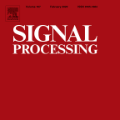A GNSS signal authentication concept named semi-assisted authentication is proposed. It is based on the re-encryption and publication of keystream sequences of some milliseconds from an already existing encrypted signal. Some seconds after the keystreams are transmitted in the signal-in-space, the signal broadcasts the key allowing to decrypt the sequences and the a-posteriori correlation at the receiver. The concept is particularized as Galileo Assisted Commercial Authentication Service, or ACAS, for Galileo E1-B, with OSNMA used for the decryption keys, and E6C, assumed to be encrypted in the near future. This work proposes the ACAS cryptographic operations and a model for signal processing and authentication verification. Semi-assisted authentication can be provided without any modification to the signal plan of an existing GNSS, without the disclosure of signal encryption keys, and for several days of receiver autonomy, depending on its storage capabilities.
翻译:提出了名为半辅助认证的全球导航卫星系统信号认证概念,其基础是从已有加密信号中重新加密和公布某些毫秒的关键流序列,在空间信号中传送关键流的几秒钟后,该信号在接收器中播放能够解密序列和等离子相关关系的钥匙,这一概念具体化为伽利略辅助商业认证服务,即伽利略E1-B的ACAS,使用OSNMA进行解密密密钥,以及E6C,假定在近期内加密,这项工作提议了ASAS加密操作和信号处理和认证核查模式,可不对现有全球导航卫星系统的信号计划作任何修改而提供半辅助认证,不披露信号加密密钥,视存储能力而定,为期数天的接收人自主权。





